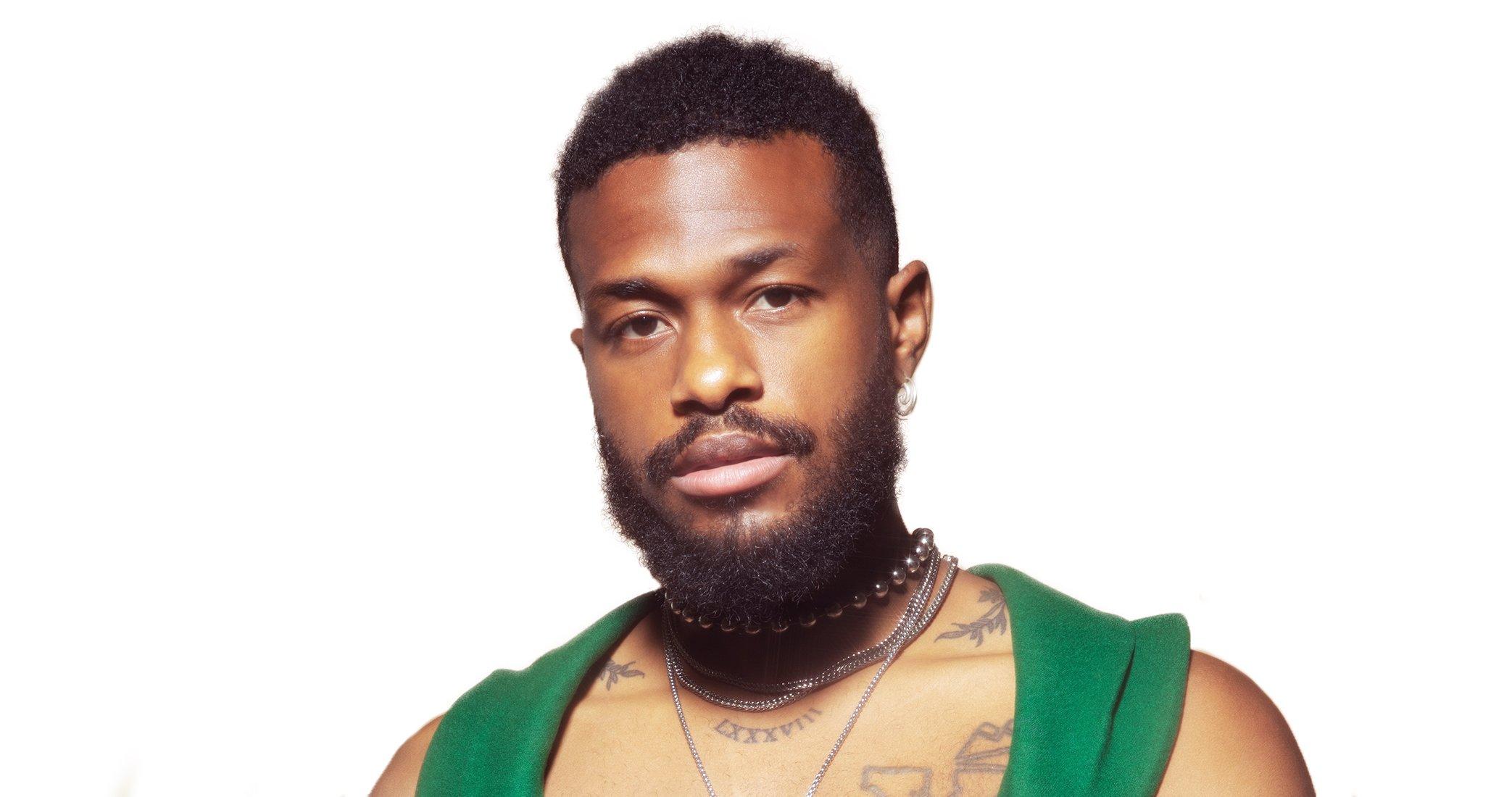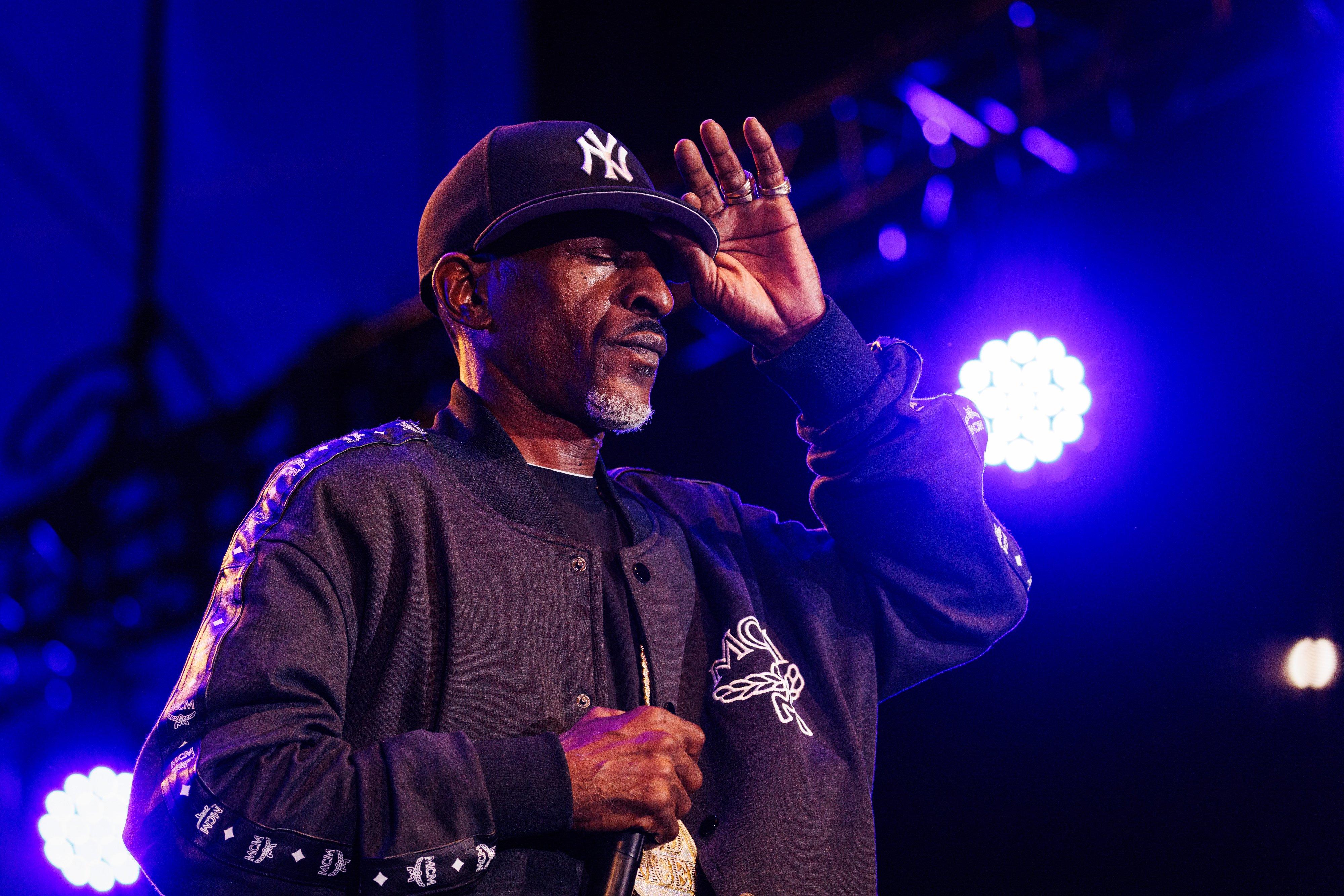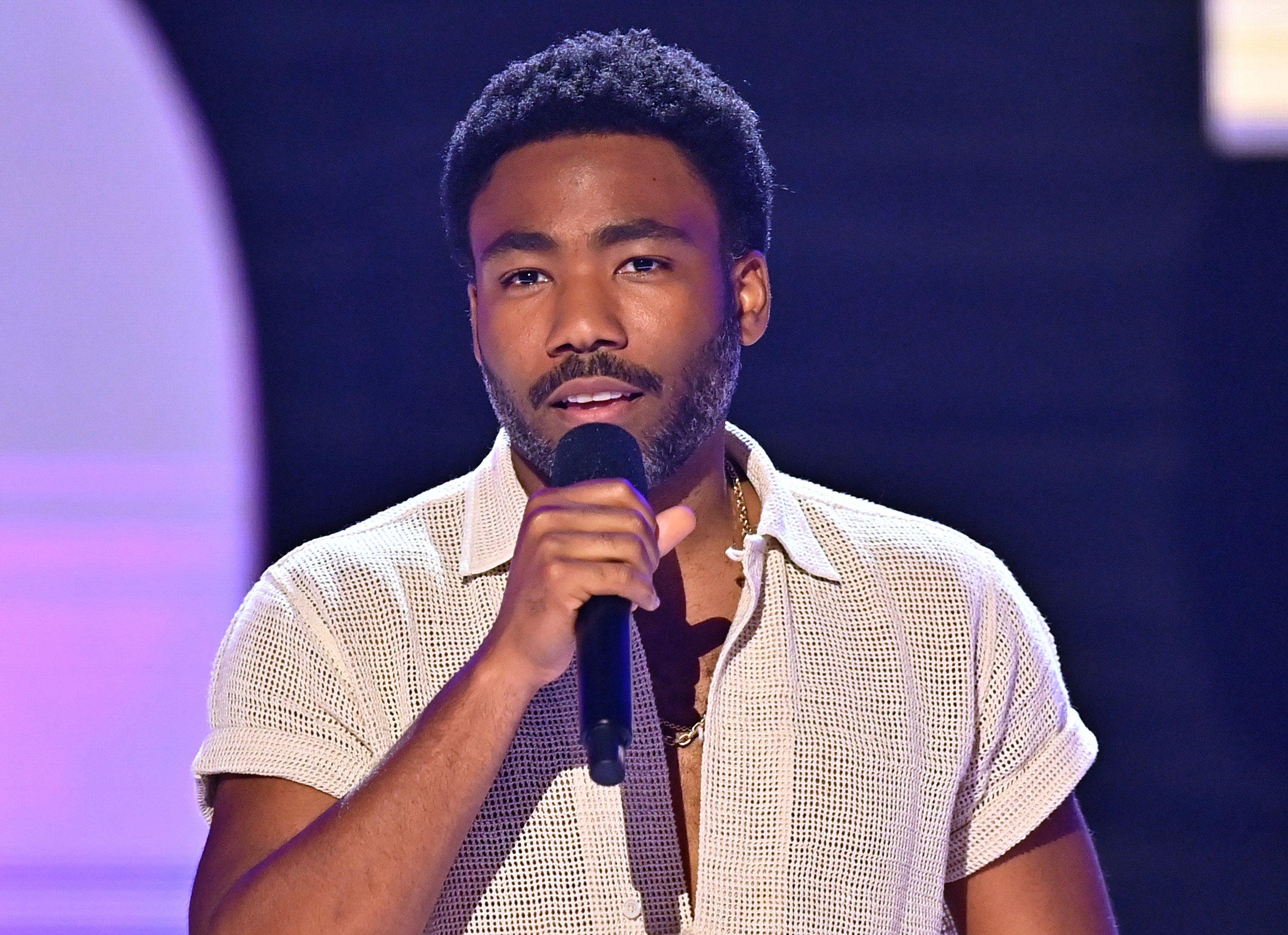Every album comes with a backstory, but not many come with two. Rakim's new project G.O.D's Network (REB7RTH), out July 26, came together in a few quick months, from signing a deal in February 2024 to completion in June. The process was spurred by one dedicated A&R person frantically combing through his network of rappers to get guest verses over beats produced by the God MC himself.
But to hear that A&R man, Matt "M80" Markoff, tell it, creating the seven-song project didn't take four months. It took four years.
"I've known [Rakim's longtime manager] Matt [Kemp] and Rakim since 2007," Markoff tells me when I get him on the phone in late June. "They're used to getting calls from me a couple of times a year just for, like, show referrals, verse referrals, things of that nature."
Back at the beginning of the pandemic, Markoff had been talking to the folks at Fat Beats, the venerable record store-turned-distributor that's a huge name in independent hip-hop. He mentioned Rakim's name to the company, and Fat Beats responded that they'd love a project from the God MC. The original pitch, Markoff remembers, was "a three or four song EP with some remixes."
Rakim quoted his price, Fat Beats agreed, and the project was underway, with the emcee meeting with producers to look for beats. But Rakim, who hasn't released a solo album since 2009's The Seventh Seal, is not one to be hurried.
"Ra was having [DJ] Premier and Pete Rock and Ninth Wonder and some of these people come to the studio," Markoff says. "Because of scheduling conflicts and stuff and, you know, normal course of life, it just wasn't right. The vibe wasn't there."
That's where Jazzy Jeff came into play. Rakim and the legendary DJ began working together and, per Markoff, it "just meshed." It seemed like, instead of a handful of songs, a full-length record was in the offing.
"As soon as they finish the first song, I walk into Fat Beats and say, ‘Hey, this is what we're doing now,'" the A&R man recalls. "Instead of Rakim with random producers, it's Rakim/Jazzy Jeff. That'll be huge."
Then…nothing.
A few years pass, and the Rakim and Jazzy Jeff project is still unfinished. (Rakim described its status as "We have a couple records already done.") Fat Beats, which was on the auction block (it was eventually sold in March 2024), wants its money back. Rakim obliges, and everyone seems set to forget about the whole thing.
Markoff, however, was not about to give up on working with the man he calls "my favorite emcee of all time."
The revamped album started its life as not an album at all. Instead, the original conception was a model Markoff had used before: licensing beats by people not typically thought of as producers. In this case, he'd be offering aspiring rappers the chance to get beats by arguably the most influential rapper of all time.
"He's taken people who are not necessarily known as producers and put together beat packages for them," manager Matt Kemp says of Markoff. "And then, one of the things he does is he goes out and he licenses those beats through a company that he has. If you're a European artist that wouldn't necessarily have access to things like that, you can get it."
So that, as of February of this year, was the (revamped) plan: have Rakim do six beats and one verse, and sell non-exclusive licenses, so that any rapper, anywhere in the world, who wants to use them in a song of their own could do so. This, indeed, was a vision that was followed through all the way to the finish line — you can see the end result released July 12, priced between $700-$1,050 depending on what you want to do with the beats and the rhyme, here.
But along the way to creating that package, things got significantly more complicated. As Rakim was making the beats, he found he really liked them. In some cases, he even wanted to rhyme on them himself.
"As the beats started coming together and Rakim was really in the studio and we started putting the rhymes onto them, we realized that it was bigger just than that [original vision]," Matt Kemp said.
The wheels started turning. Rakim, the God MC, as a producer? That would be a project worth sharing with the world, not just a few aspiring artists.
As it turns out, unbeknownst even to many Ra fans, the rapper has been making beats since the beginning. In fact, he produced — and played drums on — one of Eric B and Rakim's classic songs, 1992's "Juice (Know the Ledge)." So producing an entire project didn't seem like such a big stretch after all.
"I always was attached to making beats," Rakim explains to me. "But I got to the point where I'm confident with my production now. I got the chance to produce the album and jumped at the opportunity."
Rakim, as has been well documented over the years, comes from a musical family. His older brother Ronnie was a keyboard player of some note with his own claim on rap history, his other brother Stevie is also keyboardist who performed on some Eric B. and Rakim songs, and the rapper's aunt is the late R&B legend Ruth Brown. So when making beats, Ra will often play drums, bass, guitar, or piano. (He cops to enlisting one of his brothers if the keyboard part gets too complicated.)
He describes his production style this way: "You try to add on to the sample, and enhance certain sounds that you hear. Or you might just add a melody that you feel enhances the sample as well."
In addition to playing instruments on the project, Rakim also plays the turntable.
"I always knew how to DJ, and I like being able to enjoy the project from a different seat," he tells me. "I enjoyed putting the music together, coming up with the scratch patterns."
So with the musical side of the equation firmly in place, what about the vocals? Rakim was inspired to add verses on a few songs, and hooks on a few more.
"It's mostly a project that I was supposed to be producing," he explains. "In the midst of that, there's certain beats that I'm playing and I'm like, ‘I gotta rhyme on this one,' or, ‘I got a rhyme that fits this one perfectly.'"
The question was, what to write about? After a decade and a half without an album, the rapper had a lot to discuss, and needed to find new ways to say it.
For the project's lead single, "BE ILL," he got in plenty of internal rhymes. And the song's tempo allowed him to come up with different rhythms.
"When tracks are at that speed, I'm able to manipulate time and space to come up with different rhythms because I have so much time and space to deal with," he says. "It was one of them songs I loved rhyming to. Just having fun with words and phrases, and at the same time having so much on my mind to say."
"I'm trying to say a lot of things," Ra admits when discussing his writing on the album. "It's hard to just come back and say a verse when you've been gone so long. So I tried to be very specific and cautious with the words that I chose, and try to be entertaining at the same time. So it was a little nerve wracking."
Even with Rakim's vocal contributions (he ends up with either verses or hooks on six of the project's seven tracks), more was needed to complete the songs. That's where Markoff really got going.
"Literally, I didn't waste a single day," he remembers. "I was calling the artists in my network. I reached out to each artist one by one, and let each artist go through the folder [of beats] with me and make their picks."
Among the artists Markoff reached out to were several members of the Wu-Tang Clan. He has a long relationship with the crew, having worked with them on several projects including the well-regarded 2005 album Wu-Tang Meet the Indie Culture.
Markoff recalls the exact moment when he lined up Wu member Masta Killa for his appearance on what became "BE ILL."
"I was at the first ever Wu-Tang Clan residency in Vegas, and I told Masta Killa, ‘Dude, I just got these Rakim beats 10 minutes ago.' I played 10 seconds of the second beat, which was the beat for ‘BE ILL.' And he was like, ‘That's the one.'"
A different Wu-Tang show was responsible for one of the album's other notable guest appearances, Cash Money stalwart B.G. The two met at the concert, and the Louisiana rapper was in the studio "48 hours later," Markoff recalls.
For a handful of artists he had good long-term relationships with, Markoff let them choose which of Rakim's beats they wanted to rap over. In addition to Masta Killa, he names Chino XL, Hus Kingpin, 38 Spesh, and TriState as being on that short list. After that, he says, it was all his decision.
The end result is a list of some of the top rappers in his Rolodex: Kool G. Rap, Method Man, Kurupt, Canibus, KXNG Crooked, Skyzoo, Joell Ortiz, and many more — including an outro from Snoop Dogg. But one of the most surprising things on the tracklist is that a number of the guests aren't alive anymore.
Nipsey Hussle, Prodigy, DMX, and Fred the Godson have verses on the record. All of them were people Markoff had worked with in some capacity over the course of his career. He says that all of the verses were "in my stash or under my ownership." So when he was looking for material for the Rakim project, they were a perfect fit.
The Nipsey Hussle contribution in particular stood out so much that the entire song, "Love Is the Message," was designed around it. The project's engineer placed Neighborhood Nip's verse first, and everyone else listened to that when recording.
"We kind of glorified who he is, and came up with the title ‘Love Is the Message' to put everything in perspective," Rakim tells me. "So everybody vibed off of that and everything that we implemented had to have that feel or had to be in that direction."
One thing Rakim noticed as he was listening to the contributions coming in? Many of them were paying tribute to him. In particular, B.G. says in his verse that he's "on a song with the greatest."
"To hear things like that from my peers is a beautiful thing," says Rakim, who also admits to tearing up when hearing Snoop Dogg praise him on the outro of one of the album's songs. "Hip-hop is one of the more, I guess, feisty genres. It's hard to get that love from your peers. So it's a real blessing to hear it from people like that, to hear what they think of you and to say that on records. A lot of people might think that of you, but would never say it on a record."
For Markoff, B.G.'s tribute was particularly meaningful because of the rapper's history. He began his career in a duo, and later a quartet, with another rapper sometimes considered the greatest of all time, Lil Wayne.
"For B.G. to have that history, but acknowledge Rakim — I was speechless," Markoff confides. "It was really cool to see. It's like, ‘I'm not just going to say my partner, my friend, my confidant Lil Wayne's the best because we grew up together.'"
Finally, after all the guest verses came in, the project was ready. Seven songs, entirely produced by Rakim, with raps by him and a broad cross-section of artists. The question, then: what exactly is this project? An album? An EP? Rakim's big comeback? A teaser for his eventual full-length return?
To Markoff, none of these labels are important. He's not concerned about fans being disappointed that a project under Rakim's name features only a handful of the rapper's verses.
"The fan is going to look at it however they want to look at it," he says. "The negative people will stay negative. It wouldn't matter if it was the greatest album of all time. The positive people that are so grateful that I stepped up to the plate to help bring new Rakim music to the world are going to love it."
After all, he continues, "The whole point originally when we started making it was letting his peers shine on Rakim beats. The fact that this project morphed into something that Rakim literally is on 95% of, I couldn't have asked for more of a blessing."
So Matt Markoff, the boy who fell in love with Rakim's music at 12 is now, three decades later, putting out music from his hero.
"Dream fulfilled," he says right before we hang up. "Now I gotta figure out what I'm going to do for the rest of my life."
Latest News & Exclusive Videos













